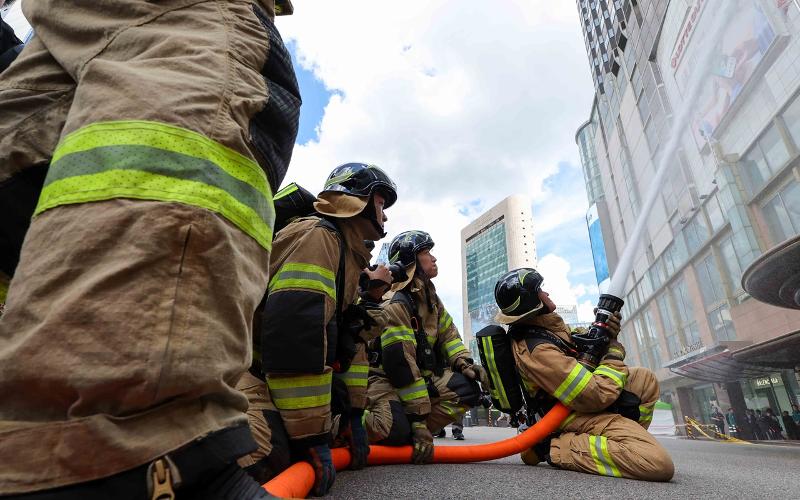- 한국어
- English
- 日本語
- 中文
- العربية
- Español
- Français
- Deutsch
- Pусский
- Tiếng Việt
- Indonesian

Firefighters on Aug. 19 hold a simulation of a fire situation at Lotte Hotel in Seoul's Jung-gu District with related agencies in conjunction with the joint military exercise Ulchi Freedom Shield with the U.S. to raise integrated defense capabilities. (Yonhap News)
By Kim Seon Ah
The country's capacity to respond to disasters has earned international acclaim.
The Ministry of the Interior and Safety on Aug. 26 said the Organisation for Economic Co-operation and Development (OECD) called the nation's management of such risks a best practice in its recent report "Managing Emerging Critical Risks."
The OECD said Korea's management of such risks is applied to disaster management following general standardized procedures and reaches a leading level in identification of risk. The report analyzed "national approaches to managing emerging critical risks, focusing on four OECD member countries: Ireland, Israel, Korea, and the United States."
Korea's strengths are its ability to predict scenarios through analyses of mid- to long-term risk factors and its model of systematically categorizing emerging risks based on severity, probability and social effects, it added.
A committee comprising experts in various fields and the use of big data and artificial intelligence were also cited as best practices.
The ministry regularly takes part in global cooperation in management systems for such risks.
At the Group of 20 Summit in October last year in Brazil, Seoul reflected relevant content in the Ministerial Declaration on Disaster Risk Reduction and presented its system at conferences abroad.
The National Disaster Management Research Institute has published its analysis of such risks in English on its official English-language website for international organizations and foreign officials to read.
sofiakim218@korea.kr